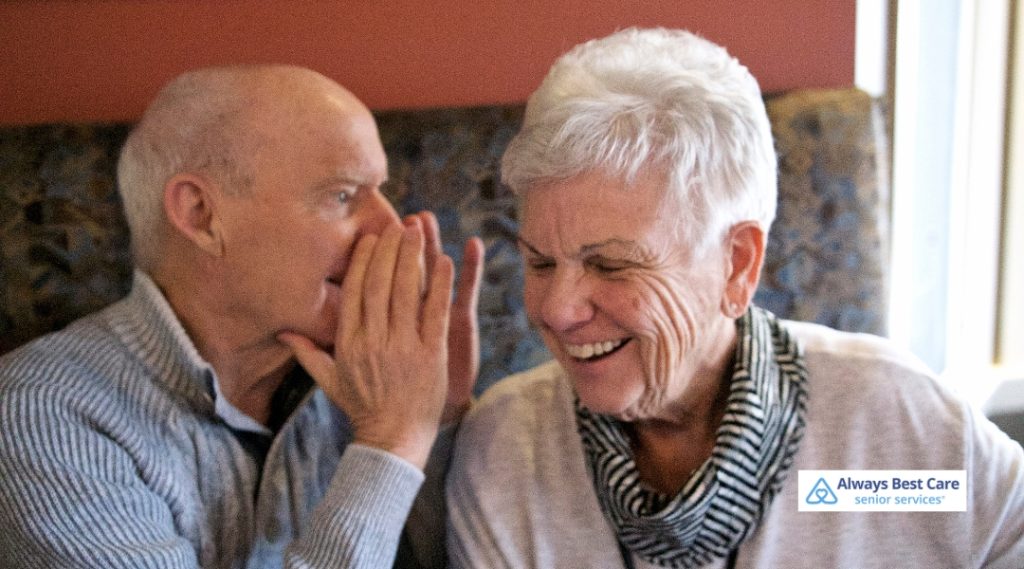Ways to Raise Hearing Issues Without Pushing Too Hard

Hearing loss sneaks up on many of us as the years tick by.
While it’s common, it’s hardly ever easy to talk about.
You’ve probably noticed Grandma asking people to repeat themselves or Dad blasting the TV loud enough for neighbours to hear. Yikes! Those small signs can signal significant changes ahead if left unaddressed.
At Always Best Care of Downingtown, we understand that these conversations aren’t just challenging, but also emotionally charged and filled with worry. But a gentle chat today might just mean a happier tomorrow for everyone.
What you will learn:
- How to recognize the early signs of hearing loss and why noticing them matters.
- Gentle, caring ways to start the conversation about hearing changes without sounding pushy or critical.
- How to address fears and stigma around hearing loss to help your loved one feel supported, not singled out.
- Encouraging small, compassionate steps toward action with the help of family and professional caregivers.
Table of Contents
Spotting the Early Signs of Hearing Loss
Sometimes hearing trouble isn’t glaringly obvious; it starts off subtle and can easily be brushed aside as “just getting older.” Here are some telltale hints that might pop up:
- Struggling to follow conversations in noisy places or groups.
- Turning up the music or TV volumes more than usual.
- Complaints that “people mumble too much.”
- Bowing out of social gatherings.
- Odd responses due to misheard words.
Sound familiar? If you’re ticking off items from this list, it may be time for an honest but gentle chat.

How to Approach The Topic: Timing and Tact are Everything
Let’s face it: nobody likes feeling singled out or nagged. We believe timing is half the battle won!
Here are some smart moves:
- Pick a calm moment, skip high-stress times or public places.
- Use “I” statements so things don’t feel accusatory:
- “I’ve noticed you’ve been turning up the TV lately.”
- “I feel worried when I see you stepping back from family chats.”
- Make sure your tone says ‘I care,’ not ‘You messed up.’
Tackling Stigma Around Hearing Loss
For many seniors, hearing trouble feels like another loss of youth, independence, and even dignity. But guess what? It doesn’t have to be this way.
Remind them:
- Hearing aids these days are tiny and barely noticeable.
- Hearing loss is not weakness; needing help happens in every stage of life.
- Addressing hearing problems actually helps people stay active, not sidelined!
Normalizing things takes away shame and makes solutions more appealing.

Encouraging Action Without Pushing Too Hard
Itching for results right away? Hold your horses, a little encouragement goes further than pressure ever could.
We often suggest:
- Offering help with setting appointments (with primary doctors or audiologists).
- Tagging along if moral support helps.
- Giving plenty of time, sometimes planting seeds now means decisions blossom later on.
How We Support Hearing Health at Always Best Care of Downingtown
Here at Always Best Care in Downingtown, we do more than notice signs; we step up when families need us most!
Our caregivers help by:
- Making sure instructions don’t get lost in translation.
- Reminding clients about appointments.
- Giving friendly nudges so prescribed devices actually get used.
Staying connected means everything as folks age, and that includes being able to hear stories around the dinner table!

Frequently Asked Questions
Q: How do I know if my loved one has hearing loss?
A: Watch out for repeated requests for repeats (“What did you say?”), missed phone calls/messages they didn’t hear ring, or an unusually cranked-up television volume.
Q: What should I avoid saying during these talks?
A: Skip blame games (“You never listen!”) and try framing concerns using gentle personal observations instead (“I feel concerned…”).
Q: Is using hearing aids embarrassing?
A: Not anymore! Most new models hide behind ears easily, and embracing only brings positive changes, like clear conversation again.
Q: Should I keep pushing if they refuse tests/treatment initially?
A: Nope, let them process at their own pace while keeping doors open for future talks backed by empathy rather than forcefulness.
Let’s Make Conversations Easier and Life Brighter!
If someone you love is showing signs of hearing loss, a kind conversation can be the first step toward staying connected. At Always Best Care of Downingtown, we’re here to support you with guidance, compassion, and experienced caregivers who understand what families need.
Contact Always Best Care of Downingtown at (610) 450-6776 to learn more and schedule your free consultation.





